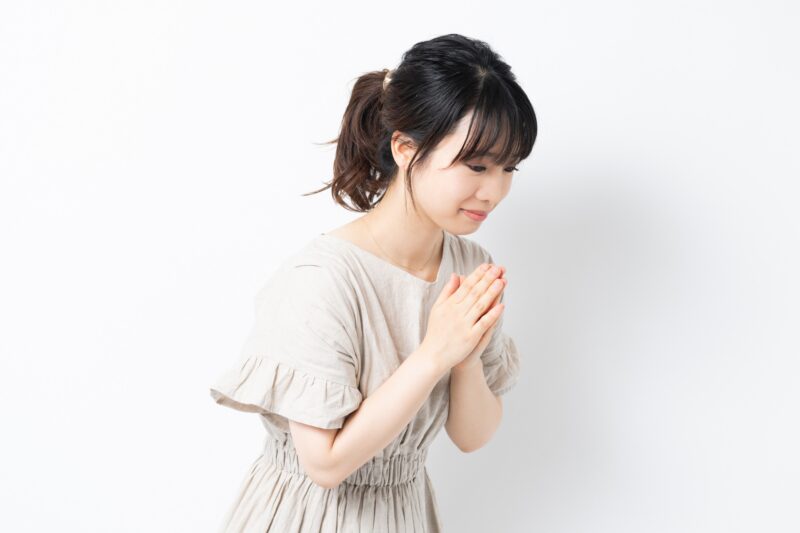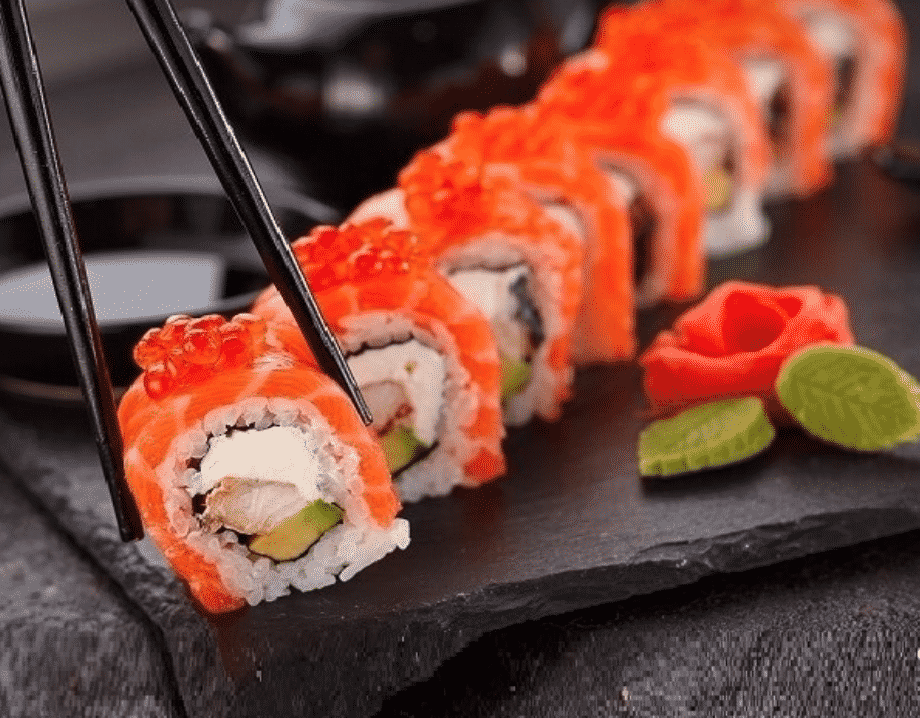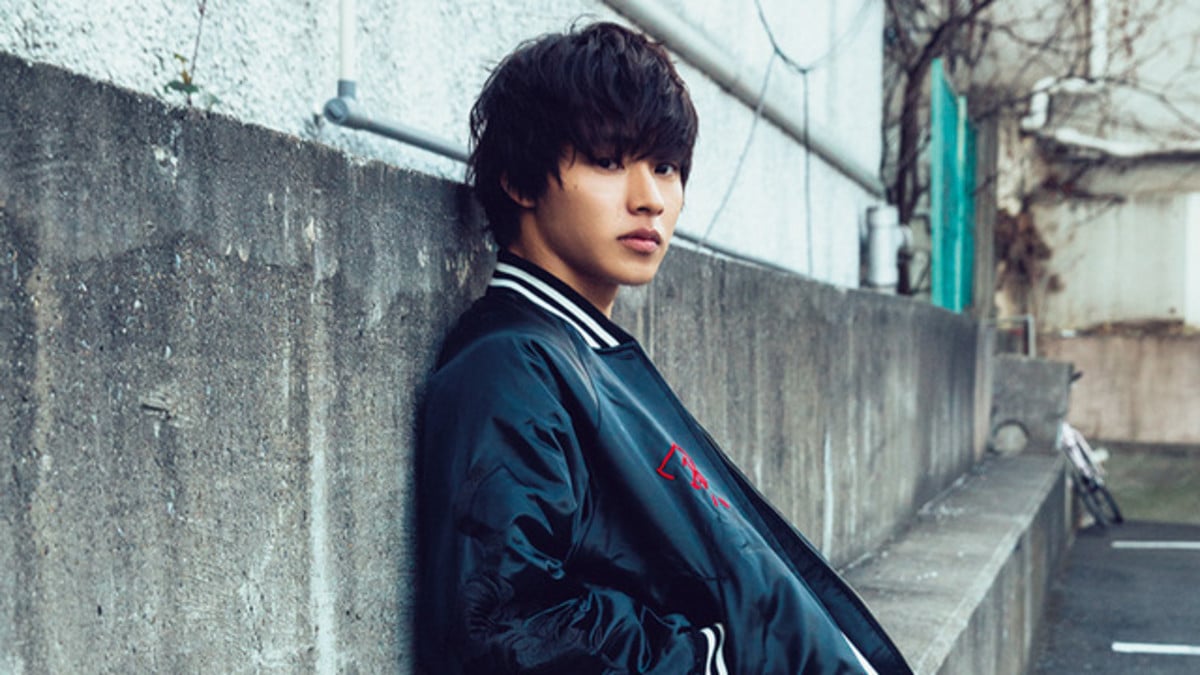
[ad_1]

With these 250 important Japanese phrases and phrases, you’ll be ready for any scenario.
The Japanese language may take years to grasp, however what if you could get via a dialog proper now? Begin by studying these on a regular basis conversational phrases and essential survival phrases. The remainder will observe.
And you’ll simply click on on a phrase or phrase to listen to its pronunciation.
Contents
Obtain:
This weblog put up is out there as a handy and moveable PDF that you simply
can take wherever.
Click on right here to get a duplicate. (Obtain)
Greetings and Starters
ohayou gozaimasu: おはようございます — Good morning
The informal model is ohayou (おはよう ). In a office, somebody greeting a colleague for the primary time that day may use this phrase even when the clock reads 7 p.m.
konnichiwa: こんにちは — Hey / good afternoon
Konnichiwa can be utilized any time of day as a common greeting, nevertheless it’s mostly used between 11 a.m. and 5 p.m.
hisashiburi: 久しぶり — It’s been some time
Fundamental Dialog
o namae wa nan desu ka?: お名前は何ですか? — What’s your identify?
This can be a well mannered solution to ask somebody for his or her identify. The extra casual model is O namae wa? (おなまえは? ) — Your identify is…?
… desu: …です — I’m … / It’s …
It’s best to think about desu just like the English phrase “to be.” In contrast to “to be,” desu stays the identical whatever the topic.
For instance:
watashi wa … desu: 私は…です — I’m …
This can be a longer model of the earlier phrase. You additionally use this to say your identify:
Watashi wa Pouru desu.
私はポールです。
I’m Paul.
However this sentence sample will also be used for any adjectives. For instance:
watashi wa … karakimashita: 私は… から来ました — I’m from …
Merely use this to explain what nation you’re from. Right here’s an inventory of some nations in Japanese:
Many others are virtually an identical in Japanese, reminiscent of:
Should you don’t know easy methods to say your nation’s identify, say it in English—likelihood is, folks will perceive the place you imply.
suki desu: 好きです — I prefer it
You possibly can say what you want by including … ga suki desu (が好きです ). For instance:
Okashi ga suki desu.
お菓子が好きです。
I like sweets.
ii desu yo: いいですよ — It’s good
You’ll typically additionally hear ii yo (いいよ ), particularly from ladies/ladies.
suki dewa arimasen: 好きではありません — I don’t prefer it
dame desu: ダメです — It’s no good
In additional informal dialog, you may as well say simply dame (だめ ) or dame da (だめだ).
takusan: たくさん — Quite a bit
Takusan is much like ooi (多い ). The primary distinction is that takusan can operate as a noun, adjective or adverb, whereas ooi is just an adjective. For instance:
Kooen ni hana ga takusan arimasu.
公園に花がたくさんあります。
There are many flowers within the park.
sukoshi: 少し — A bit
Right here’s an instance of it in use:
Koohii ni sato wo sukoshi onegaishimasu.
コーヒーにさとをすこしお願いします。
A bit sugar in my espresso, please.
ima nanji desu ka?: 今何時ですか? — What time is it?
In informal conditions, saying Ima nanji? (今何時 ) will work simply tremendous.
… ji desu: …時です — It’s … o’clock
This plus a quantity is all you could inform the time! For instance:
Ichiji desu.
一時です。
It’s 1 o’clock.
nihongo de hanashimashou: 日本語で話しましょう — Let’s discuss in Japanese
Saying Sure and No
hai: はい — Sure
One other solution to say “sure” is with non-verbal cues like nodding your head up and down or giving a thumbs up.
soudesuka: そうですか — That’s proper
Saying this whereas nodding is a well mannered solution to present that you simply’re paying consideration when somebody tells you one thing new. You may as well use soka そっか, soudane そうだね or soune そうね for selection. These are much less formal, however usually acceptable and definitely not impolite.
sou desu: そうです — That’s proper
You may as well say hai, sou desu (はい ,そうです ) — Sure, that’s proper. Nonetheless, the hai is implied and you’ll depart it off.
sou: そう — That’s proper (casual)
The Japanese use aizuchi (相槌 ), that are easy phrases or gestures that every one imply “sure,” to point you’re listening. They don’t have a strict “definition,” however are much like saying “uh-huh” or “mm-hm” in English.
mochiron: もちろん — In fact
ii desu yo: いいですよ — Okay
This actually means “That’s good!” and as such can be utilized to indicate your approval of one thing.
iie: いいえ — no
That is the no-nonsense solution to say “no.” Nonetheless, Japanese tradition prefers much less direct approaches.
There are additionally a number of non-verbal methods to specific “no.” Rubbing the again of the neck, making an “X” with each arms and even taking in a deep breath all imply “no.”
uun: ううん
This can be a sound that indicated you don’t fairly agree, much like saying “Umm…” in English.
iya: いやー
Whether or not this interjection is getting used to imply “no” depends upon the context. Should you recommend dinner and somebody responds with iya…, then their response is a non-committal “Effectively, you see…”
dame: だめ — It’s no good / You possibly can’t try this
This can be a pretty assertive solution to say no. It’s saying that one thing is pointless or shouldn’t be achieved. That is one to make use of when somebody is doing one thing you don’t need them to do, or should you’re making an attempt to perform one thing that looks as if it gained’t work.
chotto…: ちょっと… — A bit…
Should you use chotto, bear in mind to path off on the finish, as you’re principally saying, “It’s a bit of…” As an example, if somebody asks what you’re doing tomorrow afternoon with the purpose to satisfy up, you may reply “Chotto…” to imply that tomorrow afternoon’s not a perfect time for you.
In enterprise settings, two easy phrases to convey “no” with out saying “no” are:
muzukashii desu: 難しいです — It’s tough
kangaete okimasu: 考えておきます — I’ll give it some thought
Whereas not outright saying “no,” they specific a refusal to the listener with out sounding rude.
Saying “I Don’t Perceive”
wakarimasen: 分かりません — I don’t perceive
Should you’re round mates, you should utilize the informal variant, wakaranai (わからない ).
mou ichido itte kudasai: もう一度言ってください — Please say that once more
yukkuri onegai shimasu: ゆっくりお願いします — Slowly, please
kikoemasen deshita: 聞こえませんでした — I didn’t hear that
mou ichido itte kudasai: もう一度言ってください — Please say it once more
Please, Thank You and Apologies
arigatou gozaimasu: ありがとうございます — Thanks
The friendlier, extra informal solution to say thanks is arigatou (ありがとう ). You’ll additionally see its abbreviation, ari (あり ), fairly typically on Japanese message boards. A pal may simply thanks with doumo (どうも ).
iroiro arigatou gozaimashita: 色々ありがとうございました — Thanks for every part
douitashimashite: どういたしまして — You’re welcome
Though that is technically the right response to “Thanks,” it’s not often used today in informal Japanese dialog. The next phrase is rather more frequent.
mondai nai desu: 問題ないです — No downside
kudasai: ください — Please (requesting)
The phrase kudasai is used when making requests, as in these examples:
Isoide kudasai.
急いでください。
Please hurry.
Koohii o kudasai?
コーヒーをください?
Can I please have a espresso?
douzo: どうぞ — Please (providing)
Utilizing douzo is like saying, “Please go forward.” You need to use it when ushering somebody via the door earlier than you, or providing a coworker some scrumptious snacks, for instance.
otsukaresama desu: お疲れ様です — Thanks on your efforts
This expression is usually stated as a parting sentiment whenever you, or another person, finishes their work. You possibly can consider it as saying, “That’s a wrap for the day.”
shitsurei shimasu: 失礼します — Excuse me (for my rudeness)
One other expression generally heard within the workplace, shitsurei shimasu is used whenever you’re leaving a room. It’s much like saying, “Sorry to have bothered you.” You may as well finish a proper or well mannered cellphone name with this phrase.
sumimasen: すみません — Excuse me, I’m sorry
Sumimasen is usually used to say “Excuse me” (like should you need assistance getting instructions ) and “Sorry” (like whenever you by accident nudge somebody). It will also be stated as a “thanks” whenever you’ve troubled somebody (Assume: “Thanks for letting me put you out”).
gomen nasai: ごめんなさい — I’m sorry
In informal conditions and amongst members of the family and mates, gomen nasai replaces sumimasen when saying sorry.
gomen: ごめん — I’m sorry
You need to use this much less formal expression amongst those that are near you.
Saying Goodbye
jaa, mata!: じゃあ、また! / mata ne: またね — See you!
You need to use dewa mata (ではまた ) for a barely extra formal expression. There’s additionally jaa ne (じゃあね ), after which jaa mata ashita ne (じゃまた明日ね ) — see you tomorrow.
o genki de: お元気で — Take care
If “see you” is a bit of too informal for you, then you may say o genki de as a substitute. This actually means “be wholesome” and can be utilized to say, “Good luck!”
meado o oshiete moraemasu ka?: メアドを教えてもらえますか? — Might I’ve your e-mail deal with?
If that’s a bit of too lengthy to memorize, you may ask:
Meruado o oshiete?
メルアドを教えて?
Can I get your e-mail deal with? (Actually, “Train me your e mail?”)
tegami kaku yo: 手紙書くよ — I’ll write you letters
tsuitara, denwa shimasu/meeru shimasu: 着いたら、電話します / メールします — I’ll name/e mail you once I arrive
mata sugu ni kimasu yo: またすぐに来ますよ — I’ll be again quickly
asobi ni kite kudasai ne: 遊びに来てくださいね — Come go to me
watashi no ie dewa, itsumo anata o kangei shimasu yo!: わたしの家でわ, いつもあなたを感じますよ! — You’re all the time welcome in my house!
Journey Vocabulary
These useful phrases will provide you with what you could get round Japan and, in case of an emergency, ask for assist.
sumimasen, chikatetsu / eki wa doko desu ka: すみません、地下鉄 / 駅はどこですか? — Excuse me, the place’s the subway/station?
kono densha wa … eki ni tomarimasu ka?: この電車は… 駅に止まりますか? — Does this prepare cease at … station?
kono basu wa … ni ikimasu ka?: このバスは…にいきますか? — Does this bus go to … ?
takushi nori ba wa dokodesu ka?: タクシーのりばはどこですか? — The place is the taxi platform?
… made tsureteitte kudasai: …まで連れて行ってください — Please take me to …
Use this phrase to inform the taxi driver the place you wish to go.
yoyaku wo shitainodesuga: 予約をしたいのですが — I’d wish to make a reservation.
yoyaku shiteimasu: 予約しています — I’ve a reservation.
chekkuauto wa nanji desu ka?: チェックアウトは何時ですか? — What time is checkout?
michi ni mayotte shimaimashita: 道に迷ってしまいました — I’m misplaced.
tasukete!: たすけて! — Assist! (for emergencies)
tetsudatte kuremasen ka?: てつだってくれませんか? — Are you able to assist me? (for on a regular basis conditions)
keisatsu / kyuukyuusha wo yondekudasai: 警察 / 救急車を呼んでください — Please name the police / an ambulance.
Right here’s a helpful observe: the emergency numbers in Japan are 119 for an ambulance and 110 for the police.
Fundamental Query Phrases
Understanding a few of the important Japanese query phrases will go a good distance towards getting your questions throughout to Japanese audio system.
nani: 何 — What
Nani can be utilized alone or in a sentence. When positioned earlier than desu, the phrase nani drops its -i and turns into nan. For instance:
Kore wa nan desu ka?
これは何ですか?
What is that this?
doko: どこ — The place
Doko is used when asking for a location, like this:
Toire wa doko desu ka?
トイレはどこですか ?
The place is the bathroom?
Should you don’t know the phrase for the place you’re searching for, one other useful choice is pointing to it on a map and asking:
Doko desu ka?
どこですか ?
The place is it?
dare: 誰 — Who
Should you’re referring to a selected particular person, add it earlier than dare:
Kanojo wa dare desu ka?
彼女は誰ですか?
Who’s she?
itsu: いつ — When
doushite: どうして — Why
If you could ask politely, say it as Doushite desu ka? (どうしてですか?). Should you’re with mates or household, you should utilize the informal type nande (何で ) as a substitute.
naze: なぜ — Why
That is fairly much like doushite, however a bit extra formal. Naze can be used to ask the explanation behind one thing, whereas doushite has a nuance of “how” to it.
ikura: いくら — How a lot
ikutsu: いくつ — What number of
This can be a common phrase to ask “how a lot” or “what number of” of a numerical quantity. For instance:
Okashi wa ikutsu hoshii desu ka?
おかしはいくつ星いですか?
What number of snacks would you like?
It will also be used to ask somebody’s age:
Oikutsu desu ka?
おいくつですか?
How outdated are you?
nan …: 何… — What number of
Nan is a extra particular means of asking how a lot of one thing there’s. It really works by combining nan with a counter, reminiscent of:
- nanbon (何本 ) — What number of lengthy cylindrical objects?
- nannin (何人 ) — How many individuals?
- nanmai (何枚 ) — What number of sheets?
To be taught extra about easy methods to discuss portions, take a look at our put up about Japanese counting and numbers.
dochira: どちら — Which one (out of two)?
dore: どれ — Which one (out of many)?
Japanese Pronouns
Japanese has a vast number of pronouns you should utilize, serving to you make your sentences extra direct whenever you’re referring to your self, your pal or your pal’s boyfriend.
watashi: 私 — I (all genders)
Watashi is the go-to in well mannered conditions. It’s typically pronounced watakushi (私) for additional formality, and a few feminine audio system could shorten it to atashi (私) in informal settings.
boku: 僕 — I (normally male)
Boku is generally utilized by males and boys once they’re amongst mates. These days, some ladies use boku, as properly, which supplies off an air of tomboyish-ness.
ore: 俺 — I (male)
Whereas boku is usually utilized by ladies, ore is an completely male pronoun. It provides off a little bit of a tough picture, so it’s solely used amongst shut mates in informal conditions.
jibun: 自分 — Myself / your self / themselves
Jibun is used to check with a way of self. It may additionally take a wide range of kinds, like jibun no (自分の ) — one’s personal (one thing), and jibun de (自分で ) — by your self. It’s additionally a extra well mannered means of referring to another person.
anata: あなた — You
Anata interprets to “you,” nevertheless it’s not utilized in the best way it’s utilized in English. More often than not, Japanese omits “you” altogether, favoring an individual’s identify as a substitute. This type can be utilized as a time period of endearment between {couples}.
kimi: 君 — You
Kimi is essentially used to speak to somebody of decrease standing than your self, reminiscent of a boss speaking to their staff. It’s additionally used so as to add some pizzazz to writing, reminiscent of within the hit film “Kimi no na wa” (君のなわ ) — Your Identify.
kare: 彼 — He / him
Whereas the Japanese language does favor utilizing an individual’s identify over second or third particular person pronouns, utilizing kare is completely okay. Plus, kare can be utilized to check with somebody’s boyfriend.
kanojo: 彼女 — She / her
Similar as kare, however for girls. In the identical means as kare, okanojo will also be used to check with a girlfriend!
tachi: …たち — “… and firm” (pluralizes pronouns)
To show a pronoun right into a plural, simply add -tachi. For instance:
kore: これ — This
Used to check with one thing near the speaker.
sore: それ — That
Used to check with one thing near the listener.
are: あれ — That (over there)
Used to check with one thing removed from each the speaker and the listener.
Phrases for Eating
Okay, now that we’ve gotten the formalities out of the best way, it’s time to speak about what’s actually vital: meals!
onaka ga suite imasu: お腹が空いてます — I’m hungry
This actually means your abdomen has develop into empty. Some variations are:
mada tabete imasen: まだ食べていません — I haven’t eaten but
For a extra informal model, go forward and say mada tabeteinai (まだ食べていない ).
menyuu, onegai shimasu: メニュー、お願いします — Please carry me a menu
You may as well go for the extra formal model:
Menyuu, onegai dekimasu ka?
メニュー、お願いできますか?
Could I’ve the menu?
sore wa nan desu ka?: それは何ですか? — What’s that?
kore o tabete mitai desu: これを食べてみたいです — I’d like to do this
… o kudasai: …をください — I’d like …
State no matter you’d wish to order, and observe it with … o kudasai. For instance:
Koohii o kudasai.
コーヒーをください?
I’d like a espresso, please.
… ga arimasu ka?: …がありますか? — Do you will have … ?
As a reply, you’ll merely hear arimasu ( あります).
… tsuki desu ka: …付きですか? — Does it include … ?
If you wish to know if sure meals are included along with your order, use this to ask. For instance:
Furaido poteto tsuki desu ka?
フライドポテト付きですか?
Does it include fries?
… ga taberaremasen: …が食べられません — I can’t eat …
This can be a good phrase to be taught for vegetarians, vegans and different folks with dietary restrictions. For instance, niku (肉 ) is “meat” and sakana (魚 ) is “fish.” So should you’re on a strict veg weight loss plan, you may say:
Niku to sakana ga taberaremasen.
肉と魚が食べられません。
I can’t eat meat and fish.
… arerugii ga arimasu: …アレルギーがあります — I’m allergic to …
State no matter you’re allergic to and add this phrase to the tip. Simply to be secure somewhat than sorry, you may ask: … ga haitte imasu ka? (が入っています か?) which implies, “Are / Is there any … in it?” For instance:
Tamago ga haitte imasu ka?
卵が入っていますか?
Are there any eggs in it?
oishii desu!: おいしいです! — It’s scrumptious!
Should you’re eyeballing a slice of cake, then oishisou (美味しそう ), which means “It appears scrumptious,” might be helpful. An informal and “manly” solution to say one thing is scrumptious is umai (上手い ).
mazui desu: まずいです — It’s horrible
onaka ga ippai desu: お腹が一杯です — I’m full
okawari: おかわり — One other serving, please
hai, onegaishimasu: はい、お願いします — Sure, please (when supplied meals)
iie, kekkoudesu: いいえ、結構です — I’m tremendous, thanks (when supplied meals)
itadakimasu: いただきます — Let’s dig in
That is used earlier than digging into your meal, much like “Bon appétit.”
okanjou / okaikei, onegai shimasu: お勘定 / お会計、お願いします — Examine, please
warikan ni shite kudasai: 割り勘にしてください — Break up the test, please
betsubetsu de onegaishimasu: 別別でお願いします — We’ll pay individually, please
gochisousama deshita: ごちそうさまでした — Thanks for the meal
Like itadakimasu, this phrase is a fixture at each meal. You say this when the meal is completed.
Phrases for Social Gatherings
Present your mates and colleagues you understand how to have enjoyable with these phrases throughout social gatherings.
tabemashou: 食べましょう — Let’s eat
When planning a enjoyable time out with mates, there are just a few informal phrases to make use of when discussing plans. Should you determine to have lunch, state tabemashou!
nomimashou: 飲みましょう — Let’s drink
You may as well recommend grabbing a drink through the use of this phrase.
ikimashou: 行きましょう — Let’s go
As soon as your plans are determined, it’s time to go out by saying this phrase.
yatta!: やったー! — Yay!
kanpai!: 乾杯! — Cheers!
As soon as the celebration has begun, it’s important to clink your glasses collectively and say kanpai! You say this phrase earlier than consuming, not after.
ureshii desu: 嬉しいです — I’m glad
okawari o kudasai: お代わりをください — Refill, please
daijoubu desu: 大丈夫です — I’m tremendous – This can be a well mannered solution to respectfully say “no,” reminiscent of whenever you’re achieved consuming for the night time.
Phrases for House
tadaima: ただいま — I’m again
Everybody says this once they arrive house. Should you exit, say this whenever you get again to let everybody know you’ve arrived house safely. If you wish to, you may as well say it when getting back from the toilet; it tends to go down properly.
okaeri nasai: おかえりなさい — Welcome again
That is stated in response to tadaima. You need to use this when another person will get house, like when a father or mother returns from work or when a sibling will get again from cram faculty.
ofuro ni haitte mo ii desu ka?: お風呂に入ってもいいですか? — Could I take a shower?
In Japan, most households take a shower each night time, and should you’re staying someplace like with a bunch household, you’ll be welcome to have one too should you ask.
Should you’d want to take a bathe (I did), you may simply exchange the phrase ofuru (お風呂 ) — tub with shawaa (シャワー ) — bathe. Simply ensure you don’t throw the bathtub water out whenever you’re achieved, because the household shares the new water.
oyasumi nasai: おやすみなさい — Good night time
You may as well depart off the -nasai to make it much less formal.
Purchasing in Japanese
With the streets brimming with meals stalls and distributors, the high-end boutiques lining Ginza and the ultra-cool and distinctive memento retailers, there’s no solution to keep away from purchasing whereas touring via Japan.
irasshaimase: いらっしゃいませ — Welcome
You’ll hear a refrain of irasshaimase! whenever you enter a store.
kore wa nan desu ka?: これは何ですか? — What is that this?
kore wa nan to iu mono desu ka?: これは何というものですか? — What’s this known as?
kore wa ikura desu ka?: これはいくらですか? — How a lot is that this?
chotto takai desu: ちょっと高いです — It’s a bit costly
Should you haven’t began your journey of studying Japanese adjectives, then right here’s some important purchasing vocabulary:
hoka no iro ga arimasu ka?: 他の色がありますか? — Do you will have one other coloration?
sore o itadakimasu: それを頂きます — I’ll take it
kurejitto kaado wa tsukaemasu ka?: クレジットカードは使えますか? — Can I take advantage of my bank card?
Should you’d like to make use of a traveler’s test, then exchange kurejitto kaado with: toraberaazu chekku (トラベラーズチェック ) — traveler’s test.
Your Suica and Pasmo playing cards, that are rechargeable playing cards you should utilize on Japanese trains, will also be used to pay for taxis or your groceries at choose shops. You possibly can ask:
Suika wa tsukaemasu ka?
スイカわつかえますか?
Can I take advantage of my Suica?
tsutsunde itadakemasu ka?: 包んでいただけますか? — Can I’ve it gift-wrapped?
Phrases for Informal Conversations
Need to sound like a local when minimal Japanese? There are just a few frequent phrases you should utilize with mates in informal conversations.
yoroshiku onegaishimasu: よろしくお願いします — Good to satisfy you (formal)
yoroshiku ne: よろしくね — Good to satisfy you (informal)
doushita no?: どうしたの? — What’s unsuitable?
yabai: やばい — Terrible or cool
Whereas speaking, your pal could point out they’ve an vital take a look at or date. Use yabai and relying on the context, it may possibly imply “Terrible” or “Cool.”
yokatta: 良かった (よかった) — Good, wonderful, good
That is an expression of aid, a bit like, “Oh, thank goodness!”
ganbatte: 頑張って — Do your greatest
This straightforward phrase means both “Good luck” or “Do your greatest.” In additional formal conditions, you’d say Ganbatte kudasai (頑張ってください ).
omedetou!: おめでとう! — Congrats!
The formal variant is Omedetou gozaimasu (おめでとうございます ) — Congratulations.
zenzen: 全然 (ぜんぜん) — In no way (with neg. verb)
In a nutshell, zenzen is the Japanese phrase of denial. It may be used both sincerely or not, reminiscent of when answering your mom when she asks, “Am I bothering you?”
maji de?: マジで? — Actually?
You possibly can specific your shock with this informal phrase.
hontou?: 本当? (ほんとう?) — Actually? / Significantly?
This phrase interprets actually to “reality, actuality, actuality, reality.” In query type, it comes throughout extra like a stunned, “Are you severe?”
uso!: うそー! — No means!
That is one other solution to specific shock, which accurately means “Lie!”
yappari: やっぱり — As anticipated
Should you’re not stunned, you should utilize this phrase to say, “I knew it!”
Japanese Slang
Once you’re making mates, you’ll hear tons of those phrases going backwards and forwards. Many slang phrases are written in katakana, which marks them as being informal phrases.
ukeru: ウケる — Humorous, hilarious
Say your pal made a nice joke—by saying ukeru, you’ll let him know he struck your humorous bone.
chou: 超 — Tremendous
This phrase is used so as to add emphasis, just like the phrases “actually” or “very.” You might say, for instance, that one thing is chou ukeru (超ウケる ), or very humorous.
dasai: ださい — Uncool
kimoi: キモい — Gross
Kimoi is a contraction of the phrases kimochi (気持ち ) — feeling, and warui (悪い ) — unhealthy.
gachi: ガチ — Completely, actually, critically
Gachi implies that one thing truly passed off, or was actually as intense because the speaker claims.
hanpa nai: 半端ない — Loopy, insane
Hanpa nai signifies that one thing is superior or insane, however in a great way, like an epic curler coaster experience.
As you may see, context issues so much in Japanese. To get comfy with conversational phrases sooner, attempt watching Japanese films, TV exhibits or vlogs and look out for the expressions above—they’re quite common!
FluentU is a Japanese studying app that makes use of actual Japanese media clips, serving to you be taught helpful phrases in context. These movies even have interactive subtitles and vocabulary lists to indicate you the way native audio system naturally use the phrases above in dialog.
And there you will have it! With these phrases and a few core vocabulary, you’ll be capable to make small discuss with new mates, or present others that you simply’re sincerely focused on studying Japanese.
Simply by incorporating just a few of those phrases into each day life or dialog, you’ll quickly you’ll want to hear nihongo ga jouzu desu ne! (日本語が上手ですね ) — You’re good at talking Japanese!
Obtain:
This weblog put up is out there as a handy and moveable PDF that you simply
can take wherever.
Click on right here to get a duplicate. (Obtain)
[ad_2]














